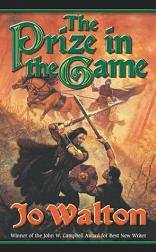Logged in to Wikipedia tonight to get a message that the article on incluing I wrote almost five years ago was considered for deletion:
Apparently a neologism, but I can’t find evidence of wide use. Google Scholar and News searches turn up nothing but misspellings of “including”. Only references currently are a newsgroup faq, and the livejournal of the (admittedly notable) author who coined it. Quote: “This is totally a word I made up when I was fifteen”.
If reliable sources can be found, there could possibly be something on the concept to salvage into Exposition (literary technique), but I very much doubt it.
It’s this bloody attitude that has increasingly soured me on Wikipedia over the years. Way back when I started getting involved with Wikipedia, around 2003-2004 or so the idea of an online encyclopedia that would hold everything and which you could write articles for yourself was intoxicating. It was easy too to whip up a quick article, just a stub and see it grow over the days and years. But those days are long gone, smothered by the ever growing self-important bureaucracy that has grown up around it.
Too many people seem to think that noticability means everything, that if a subject is obscure or too fannish or cultish it doesn’t deserve an entry, when it’s those very things that makes Wikipedia different from every other encyclopedia. Incluing is a useful term of literary criticism, especially within science fiction and is precisely the sort of semi-obscure concept that should have an entry at Wikipedia explaining it.
I just don’t understand the mindset of people who go around Wikipedia looking for articles to delete. Sure, there’s a certain amount of spam and such to get rid off, but I’ve seen so many examples now of editors and administrators who went out of their way to get rid of articles that are clearly not spam, but just obscure or fannish or not suited to the New Seriousness of Wikipedia. As if an entry like incluing demands Wikipedia by being there.
